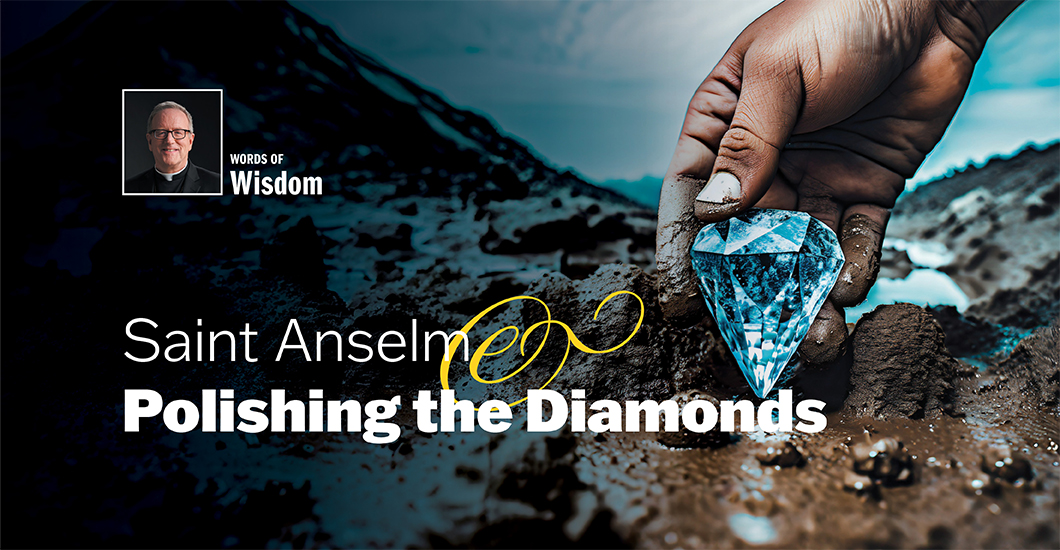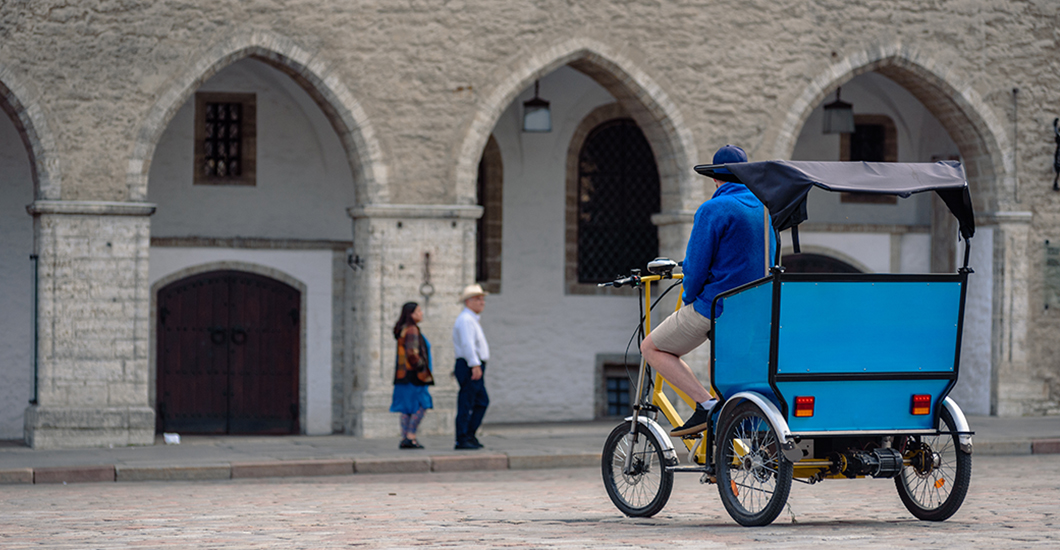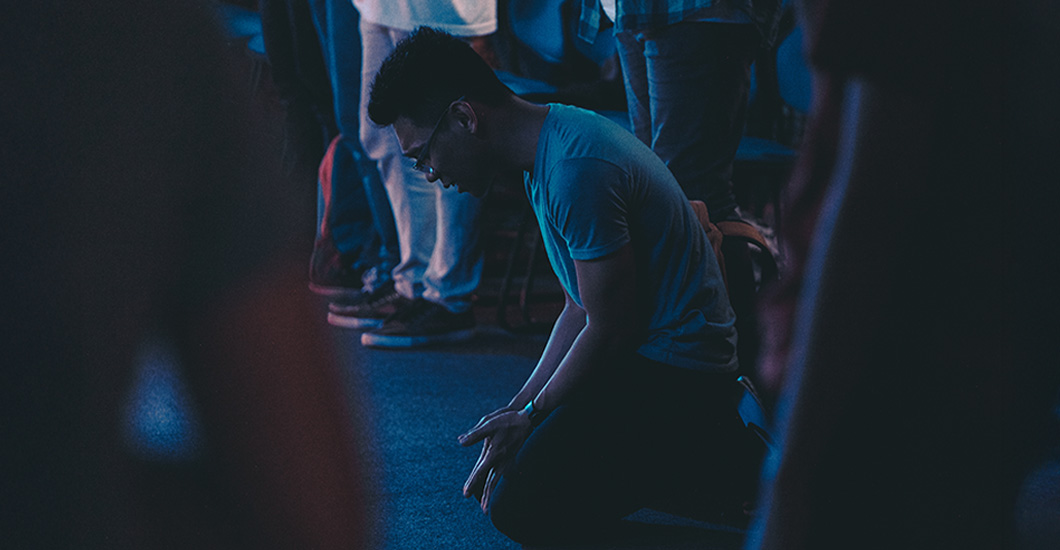Trending Articles
Saint Anselm and Polishing the Diamonds
There is a regrettable interpretation of the Cross that has, unfortunately, infected the minds of many Christians. This is the view that the bloody sacrifice of the Son on the cross was “satisfying” to the Father, an appeasement of a God infinitely angry at sinful humanity. In this reading, the crucified Jesus is like a child hurled into the fiery mouth of a pagan divinity in order to assuage its wrath.
But what ultimately refutes this twisted theology is the well-known passage from John’s Gospel: “God so loved the world, that he sent his only Son, that all who believe in him might have eternal life.”(3:16) John reveals that it is not out of anger or vengeance or in a desire for retribution that the Father sends the Son, but precisely out of love. God the Father is not some pathetic divinity whose bruised personal honor needs to be restored; rather, God is a parent who burns with compassion for His children who have wandered into danger.
Does the Father hate sinners? No, but he hates sin. Does God harbor indignation at the unjust? No, but God despises injustice. Thus, God sends his Son, not gleefully to see him suffer, but compassionately to set things right.
Saint Anselm, the great medieval theologian who is often unfairly blamed for the cruel theology of satisfaction, was eminently clear on this score. We sinners are like diamonds that have fallen into the muck. Made in the image of God, we have soiled ourselves through violence and hatred. God, claimed Anselm, could have simply pronounced a word of forgiveness from heaven, but this would not have solved the problem. It would not have restored the diamonds to their original brilliance. Instead, in his passion to reestablish the beauty of creation, God came down into the muck of sin and death, brought the diamonds up, and then polished them off.
In so doing, of course, God had to get dirty. This sinking into the dirt—this divine solidarity with the lost—is the “sacrifice” which the Son makes to the infinite pleasure of the Father. It is the sacrifice expressive, not of anger or vengeance, but of compassion.
Jesus said that any disciple of His must be willing to take up his cross and follow the Master. If God is self-forgetting love even to the point of death, then we must be such love. If God is willing to break open his own heart, then we must be willing to break open our hearts for others. The cross, in short, must become the very structure of the Christian life.

Bishop Robert Barron is the founder of Word on Fire Catholic Ministries and is the bishop of the Diocese of Winona–Rochester. Bishop Barron is a #1 Amazon bestselling author and has published numerous books, essays, and articles on theology and the spiritual life. ARTICLE originally published at wordonfire.org. Reprinted with permission.
Related Articles
As Catholics, we have heard from the time we were little: “Offer it up.” From a little headache to a very serious emotional or physical hurt, we were encouraged to ‘offer it up.’ It wasn't until I was an adult that I pondered the meaning and purpose of the phrase, and understood it as ‘redemptive suffering.’ Redemptive suffering is the belief that human suffering, when accepted and offered up in union with the Passion of Jesus, can remit the just punishment for one's sins or the sins of another. In this life, we are going to suffer various minor and major physical, mental, emotional, and spiritual trials. We can choose to grumble about it or we can surrender it all and unite our suffering with Jesus’ Passion. It can be redemptive not only for us, we can even help someone open their heart to receive Jesus' healing and forgiveness. We may never know in this life how offering up our sufferings has helped someone else break free of the bondages that have held them for so long. Sometimes, God allows us to experience the joy of seeing someone break loose from a life of sin because we offered up our suffering for them. We can offer up our sufferings even for the poor souls in purgatory. When we finally arrive in Heaven, imagine those we were praying for and offering up our sufferings greeting us and thanking us. Redemptive suffering is one of those areas that can be difficult to fully understand, but when we look at Scripture and what Jesus taught and how his followers lived, we can see that it is something that God is encouraging us to do. Jesus, help me each day to offer up my little and big sufferings, difficulties, annoyances, and unite them to You on the Cross.
By: Connie Beckman
MoreA gift that you can access from anywhere in the world, and guess what? It’s free not just for you but for everyone! Imagine that you are lost in a deep pit of darkness and hopelessly groping around. Suddenly, you see a great light and someone reaching out to rescue you. What a relief! The overwhelming peace and joy can’t be fully expressed in words. The Samaritan woman felt like this when she met Jesus at the well. He told her: “If you knew the gift of God, and who it is that is saying to you: ‘Give me a drink,’ you would have asked Him, and He would have given you living water.” (John 4:10) As soon as she heard these words, the woman realized that she had been waiting her whole life for this. “Give me this water, so that I may never be thirsty,” she implored: (John 4:15) It was only then, in response to her request and thirst for knowledge of the Messiah, that Jesus revealed Himself to her: “I am He, the One who is speaking to you.” (John 4:26) He is the living water that quenches every thirst—the thirst for acceptance, the thirst for understanding, the thirst for forgiveness, the thirst for justice, the thirst for happiness, and most importantly, the thirst for love, God’s love. Until You Ask… The gift of Christ’s presence and mercy is available for everyone. “God proves His love for us in that, while we were still sinners, Christ died for us.” (Romans 5:8) He died for every sinner so that by the Blood of Christ, we may be cleansed from our sin and be reconciled with God. But, like the Samaritan woman, we need to ask Jesus. As Catholics, we can easily do this through the Sacrament of Penance, confessing our sins and being reconciled with God when the priest absolves us from sin, using the power given by God to act in persona Christi (in the person to Christ). It gives me great peace to frequent this Sacrament because the more I do it, the more I become receptive to the Holy Spirit. I can feel Him speaking through my heart, helping me to discern good from evil, growing in virtue as I flee from vice. The more frequently I repent of my sins and turn back to God, the more sensitive I become to the presence of Jesus in the Holy Eucharist. I become conscious of His presence in those who have received Him in Holy Communion. I feel His warmth in my heart when the priest walks past me with the ciborium filled with the Consecrated Host. Let’s be honest about it. Many people line up for Communion, but very few people line up for Confession. It is sad that many people are missing out on such a very important source of grace to strengthen us spiritually. Here are a few things that help me get the most out of Confession. Be Prepared A thorough examination of the conscience is necessary before Confession. Prepare by going through the commandments, the seven deadly sins, the sins of omission, the sins against purity, charity, etc. For a sincere confession, the conviction of sin is a prerequisite, so it is always helpful to ask God to enlighten us about certain sins we committed that are unknown to us. Ask the Holy Spirit to remind you of sins you have forgotten, or make you aware of where you have been unconsciously going wrong. Sometimes we delude ourselves into thinking that something is okay when it’s not. Once we prepare well, we can again seek the assistance of the Holy Spirit to wholeheartedly admit our failures with a contrite heart. Even if we are not approaching confession with a perfectly contrite heart, it can happen during confession itself through the grace present in the Sacrament. Regardless of what you are feeling about certain sins, it’s good to confess them anyway; God forgives us in this Sacrament if we honestly admit our sins, recognizing that we have done wrong. Be Honest Be honest with yourself about your own weaknesses and failures. Admitting struggles, and dragging them out of the darkness into the light of Christ will relieve you of paralyzing guilt and bolster you against sins you tend to commit repeatedly (such as addictions). I remember once, in confession, when I told the priest about a certain sin that I just couldn’t seem to come out of, he prayed over me to specifically receive the grace from the Holy Spirit to help overcome it. The experience was so liberating. Be Humble Jesus told Saint Faustina that “A soul does not benefit as it should from the Sacrament of Penance if it is not humble. Pride keeps it in darkness.” (Diary, 113) It is humiliating to kneel in front of another human being and openly encounter the dark areas of your life. I remember receiving a very long sermon for confessing a grave sin once and getting reprimanded for repeatedly confessing the same sin. If I can learn to look at these experiences as the loving corrections of a Father who cares so much about your soul and willingly humble myself, those bitter experiences can become blessings. The forgiveness of God is a powerful indication of His love and faithfulness. When we step into His embrace and confess what we’ve done, it restores our relationship with Him as our Father and we, His children. It also restores our relationship with one another who belong to one body—the body of Christ. The best part of receiving God’s forgiveness is how it restores the purity of our soul so that when we look at ourselves and others, we get to see God dwelling in all.
By: Cecil Kim Esgana
MoreIt is not easy to predict whether you will be successful, wealthy or famous, but one thing’s for sure– death awaits you at the end. A fair bit of my time these days is taken up practicing the art of dying. I must say, I am enjoying every moment of this exercise, at least ever since I have come to the realization that I have entered the heavy end of the scales of time. I am well and truly into and past the three score years and ten, and so I begin to think seriously: what positive preparations have I put in place for the inevitability of my demise? How stainless a life am I living? Is my life as free as possible from sin, especially the sins of the flesh? Is my ultimate aim saving my immortal soul from eternal damnation? God, in His mercy, has allowed me ‘extra time’ in this game of life, in order for me to get my affairs (especially spiritual affairs) in order before I go over the top and into the shadows of the valley of death. I had a lifetime-plus to sort these out, but like many, I neglected the most important things in life, preferring to foolishly search for more wealth, security, and instant gratification. I can’t say I’m anywhere near successful in my endeavors as the distractions of life continue to plague me, despite my senior age. This constant conflict is ever so annoying and tormenting, yet when one can still be tempted, such wasted emotions are so futile. Escaping the Inevitable Despite my Catholic upbringing and its urging to embrace and look forward to the inevitable tap on the shoulder from God’s ‘Angel of Death,’ I’m still anticipating that letter from the King congratulating me on reaching ‘the big zero.’ Of course, like many in my age bracket, I am reaching out to stave off the inevitable by embracing any incentive to help prolong my earthly existence with medicines, hygiene, diet, or by whatever means possible. Death is inevitable for everyone, even for the Pope, our loveable Aunt Beatrice, and royalty. But the longer we escape the inevitable, the more that glimmer of hope beams forth ever so faintly in our psyche—that we can push the envelope, put one more puff of breath into that balloon, extending it to its very outer utmost boundary. I suppose, in a way, that may even be the answer to successfully stretching the death date—that positiveness, that resistance to immortality. I have always thought, if I can avoid unjustifiable taxes by whatever means, then why not try avoiding the other certainty, death? Saint Augustine refers to death as: “the debt that must be paid.” Archbishop Anthony Fisher adds on: “When it comes to death, modernity is into tax evasion, so also is our present-day culture in denial about ageing, frailty, and death.” The same goes for fitness gyms. I counted just last week, five such establishments in our relatively small community, in the outer western suburb of Sydney. This frantic desire to be fit and healthy is in itself noble and commendable, providing we don’t take it too seriously as it may affect every aspect of our lives to its detriment. And sometimes, it can and does lead to narcissism. We should be confident in our ability and talents but keep in sight the virtue of humility that keeps us grounded to reality, so that we don’t wander too far from God’s guidelines for normality. To the Fullest Degree We even try to tame ageing and death, so they occur on our own terms through cosmetic and medical excesses, cryopreservation, illegally stolen organs for transplants, or the most diabolical way of trying to beat natural death by the act of Euthanasia…as if there aren’t enough mishaps that take our lives prematurely. Still, most people dread the thought of death. It can be paralyzing, bewildering, and depressing, because it will be the end of our earthly life, but it simply takes a mustard seed of faith to change all those ‘end of the world’ feelings and open up a whole new vista of hope, joy, pleasurable anticipation, and happiness. With faith in an afterlife with God and all that it entails, death is simply a necessary door that must be opened for us to take part in all the promises of Heaven. What a guarantee, given by our Almighty God, that through the belief in His son Jesus and living a life based on His instructions, after death comes life-life to the fullest degree. And so, we can confidently ask the question: “Oh death, where is thy victory, death where is thy sting?” (1 Corinthians 15:55) Smidgeon of Faith When entering the great unknown, trepidation is to be expected, but contrary to Shakespeare’s Hamlet, who said: “Death was the undiscovered country from whose bourn no traveler returns,” we who have been blessedly endowed with the gift of faith have been shown the evidence that some souls have returned from the bowels of death to give witness to that misinformation. The Catechism of the Catholic Church teaches that death is a consequence of sin. The Church's Magisterium, as authentic interpreter of the affirmations of Scripture and Tradition, teaches that death entered the world on account of man's sin. “Even though man's nature is mortal, God had destined him not to die. Death was therefore contrary to the plans of God the Creator and entered the world as a consequence of sin.” The Book of Wisdom confirms this. “God did not make death, and He does not delight in the death of the living. He created everything so that it might continue to exist and everything He created is wholesome and good.” (Wisdom 1: 13-14, 1 Corinthians 15:21, Romans 6:21-23) Without genuine faith, death seems like annihilation. Therefore, search out faith because that is what alters the idea of death to the hope of life. If the faith you possess isn’t strong enough to overcome the fear of death, then make haste to strengthen that smidgeon of faith into a full-blown belief in Him Who is Life, for after all, what is at stake is your Eternal Life. So, let’s not leave things too much to chance. Have a safe journey, see you on the other side!
By: Sean Hampsey
MoreAdversities mark our lives on earth, but why would God allow that? About two years ago, I fronted up for my yearly blood test and when the results came back, I was told I had ‘Myasthenia Gravis.’ Fancy name! But neither I nor any of my friends or family had ever heard of it. I imagined all the possible terrors that may be ahead for me. Having lived, at the time of diagnosis, a total of 86 years, I had incurred many shocks. Rearing six boys was full of challenges, and these continued as I watched them build their families. I never gave into despair; the grace and power of the Holy Spirit always gave me the strength and trust I needed. I eventually depended on Mr. Google to learn more about ‘Myasthenia Gravis’ and after reading pages of what may happen, I realized I just had to trust my doctor to help me through. He, in turn, put me in the hands of a specialist. I went through a rocky road with newer specialists, changing tablets, more trips to hospital, and eventually having to give up my license. How could I survive? I was the one who drove friends to different events. After much discussion with my doctor and family, I finally realized that it was time to put my name down for acceptance into a nursing home. I chose Loreto Nursing Home in Townsville because I would have opportunities to nurture my faith. I was faced with many opinions and advices—all legitimate, but I prayed for guidance from the Holy Spirit. I was accepted into Loreto Home and made up my mind to accept what was on offer. It was there that I met Felicity. A Near-Death Experience A few years ago, there was a 100-year-flood in Townsville and a reasonably new suburb went under water with most houses inundated. Felicity’s house, like all others in the suburb, was low set, so she had about 4 feet of water throughout the entire house. As the soldiers from the Army Base in Townsville took up the task of a massive cleanup, all the residents had to find alternate accommodation to rent. She stayed at three different rental properties during the next six months, simultaneously helping the soldiers and working towards making her home livable again. One day, she began to feel unwell and her son, Brad, called the doctor on call, who advised on taking her to the hospital if things did not get better. The next morning, Brad found her on the floor with a swollen face and immediately called the ambulance. After many tests, she was diagnosed with ‘Encephalitis,’ ‘Melioidosis’ and ‘Ischemic attack,’ and remained unconscious for weeks. The contaminated flood waters she had waded through six months ago, it turns out, had contributed to an infection of her spinal cord and brain. As she floated in and out of consciousness, Felicity had a near-death experience: “As I was lying unconscious, I felt my soul leaving my body. It floated out and flew up very high to a beautiful spiritual place. I saw two people looking at me. I went towards them. It was my mother and father—they looked so young and were so happy to see me. As they stood aside, I saw something amazing, a stunning face of Light. It was God the Father. I saw people from every race, every nation, walking in pairs, some holding hands…I saw how happy they were to be with God, feeling at home in Heaven. When I woke up, I was so disappointed that I left that beautiful place of peace and love that I believed was Heaven. The priest who was tending to me all throughout my time in hospital said he had never seen anyone react as I did when I woke up.” Adversity into Blessings Felicity says she always had faith, but this experience of imbalance and uncertainty was enough to ask God: “Where are you?” The trauma of the 100-year-flood, the massive clean-up afterwards, the months of setting up her home while living in rental properties, even the nine months in hospital of which she had little memory of could have been the death of her faith. But she tells me with conviction: “My faith is stronger than ever.” She recalls that it was her faith that helped her deal with what she went through: “I believe I survived and came back, to see my beautiful granddaughter go to a Catholic High School and finish Year Twelve. She is going on to University!” Faith believes all things, heals all things, and faith never ends. It is in Felicity that I found the answer to a common question we all may face at some point in life: “Why does God allow bad things to happen?” I’d say that God gives us freewill. Men can initiate bad events, do evil things, but we can also call on God to change the situation, to change the hearts of men. Truth is, in the fullness of grace, He can bring good even out of adversity. Just as He led me to the nursing home to meet Felicity and hear her beautiful story, and just as Felicity found strength in faith as she spent endless months in the hospital, God can change your adversities into goodness too.
By: Ellen Lund
MoreDid you know that we have all been invited to the Greatest Feast in the history of mankind? A few years ago, I was reading the story of the birth of Dionysus with my students. Persephone, the legend goes, was impregnated by Zeus and asked to see him in his true form. But a finite creature cannot look upon an eternal being and live. So, the mere sight of Zeus caused Persephone to explode, there and then, on the spot. One of my students asked me why we don’t explode when we receive the Eucharist. I told him I didn’t know, but it couldn’t hurt to be prepared. The Approach Every day, and in every Catholic church around the world, a great miracle is at work—the greatest miracle in the history of the world: the Creator of the universe is incarnate on the altar, and we are invited to approach that altar to take Him in our hands. If we dare. There are some who argue—and convincingly—that we shouldn’t dare to walk up and grab the Eucharist as though it were a theater ticket or a drive-through order. There are others who argue, and convincingly, that the human hand makes a worthy throne for such a humble King. Either way, we should be prepared. In 2018, I visited the Tower of London with my family. We stood in line for an hour and a half to see the Crown Jewels. An hour and a half! First, we were issued tickets. Then, we sat through a documentary video. Shortly after, we were ushered through a winding series of velvet, roped corridors past silver and gold vessels, suits of armor, lavish and costly outfits of fur, satin, velvet, and woven gold…until at last, we were granted a brief glimpse of the crown through bullet-proof glass and over the shoulders of heavily armed guards. All that just to see the Queen’s crown! There is something infinitely more precious at every Catholic Mass. We should be prepared. We should be trembling. Mobs of Christians should be fighting for a glimpse of this miracle. So, where is everybody? Quarantine Miracle During the pandemic, when the Church doors were closed to the faithful, and we were forbidden—well, you were forbidden—from witnessing this miracle in person, how many begged the Church to have the courage to trust that we’d rather die than be deprived of this miracle? (Don’t get me wrong. I don’t blame the Church’s decision which was based on the very best medical advice.) I don’t remember hearing about any outrage, but then, I was busy hiding in the cloister, sterilizing countertops, and doorknobs. What would you give to have been there at Cana when Jesus worked His first miracle—to stand in the presence of the Queen of Heaven? What would you give to have been there on that first Holy Thursday night? Or to have stood at the foot of the Cross? You can. You’ve been invited. Be aware and be prepared.
By: Father Augustine Wetta O.S.B
MoreQ - My many Christian friends celebrate ‘Communion’ every Sunday, and they argue that the Eucharistic presence of Christ is only spiritual. I believe Christ is present in the Eucharist, but is there any way to explain it to them? A – It is indeed an incredible claim to say that at every Mass, a small piece of bread and a small chalice of wine become the very flesh and blood of God Himself. It is not a sign or a symbol, but truly the body, blood, soul, and divinity of Jesus. How can we make this claim? There are three reasons why we believe this. First, Jesus Christ said so Himself. In John’s Gospel, Chapter 6, Jesus says: “Amen, amen, I say to you, unless you eat the flesh of the Son of Man and drink His blood, you do not have life within you. Whoever eats My flesh and drinks My blood has eternal life, and I will raise him on the last day. For My flesh is true food, and My blood is true drink. Whoever eats My flesh and drinks My blood remains in Me and I in him.” Whenever Jesus says, “Amen, Amen, I say to you…”, this is a sign that what He is about to say is completely literal. Further, Jesus uses the Greek word trogon which is translated ‘to eat’—but really means ‘to chew, gnaw, or rip with one’s teeth.’ It’s a very graphic verb which can only be used literally. Also, consider the reaction of His hearers; they walked away! It says in John 6: “as a result of this [teaching], many of His disciples returned to their former way of life and no longer accompanied Him.” Does Jesus chase them down, tell them that they misunderstood Him? No, He allows them to leave—because He was serious about this teaching that the Eucharist is truly His flesh and blood! Second, we believe because the Church has always taught it from its earliest days. I once asked a priest why there was no mention of the Eucharist in the Creed which we profess every Sunday—and he replied that it was because no one debated His Real Presence, so it wasn’t necessary to officially define it! Many of the Church Fathers wrote about the Eucharist—for example, Saint Justin Martyr, writing around the year 150 AD, penned these words: “For not as common bread and common drink do we receive these; but we have been taught that the food which is blessed by the prayer of His word, and from which our blood and flesh are nourished, is the flesh and blood of that Jesus who was made flesh.” Every Church Father is in agreement—the Eucharist is truly His flesh and blood. Finally, our faith is strengthened through the many Eucharistic miracles in the history of the Church—over 150 officially documented miracles. Perhaps the most famous occurred in Lanciano, Italy in the 800s, where a priest who doubted Christ’s presence was shocked to find that the Host became visible flesh, while the wine became visible as blood. Later scientific tests discovered that the Host was heart flesh from a human male, type AB blood (very common among Jewish men). The heart flesh had been badly beaten and bruised. The blood had congealed into five clumps, symbolizing the five wounds of Christ, and miraculously the weight of one of the clumps is equal to the weight of all five taken together! Scientists cannot explain how this flesh and blood has lasted for twelve hundred years, which is an inexplicable miracle in itself. But how can we explain how this happens? We make a distinction between accidents (what something looks like, smells like, tastes like, etc) and substance (what something actually is). When I was a young child, I was at my friend’s house, and when she left the room, I saw a cookie sitting on a plate. It looked delectable, smelled like vanilla, and so I took a bite…and it was soap! I was so disappointed, but it taught me that my senses could not always decipher what something actually is. In the Eucharist, the substance of bread and wine change into the substance of Christ’s body and blood (a process known as transubstantiation), while the accidents (the taste, smell, look) remain the same. It does indeed take faith to recognize that Jesus is truly present, since it cannot be perceived by our senses, nor is it something we can deduce with our logic and reason. But if Jesus Christ is God and He cannot lie, I am willing to believe that He is not a sign or symbol, but truly present in the Most Blessed Sacrament!
By: Father Joseph Gill
MoreWhen your path is swarming with difficulties, and you’re feeling clueless, what would you do? The summer of 2015 was unforgettable. I was at the lowest point of my life—alone, depressed, and struggling with all my strength to escape a terrible situation. I was mentally and emotionally drained, and felt that my world was going to end. But strangely, miracles unfold when we least expect them. Through a string of unusual incidents, it almost seemed as if God was whispering in my ear that He has got my back. On that particular day, I had gone to bed desperate and broken. Unable to sleep, I was once again pondering the sad state of my life as I clutched my rosary, attempting to pray. In a strange kind of vision or dream, a radiant light began emanating from the rosary on my chest, filling the room with an ethereal golden glow. As it slowly started to spread, I noticed dark, faceless, shadowy figures at the periphery of the glow. They had been closing in on me with unimaginable speed, but the golden light grew brighter and drove them farther away whenever they tried to come close to me. I felt frozen, unable to react to the strangeness of the vision. After a few seconds, the vision suddenly ended, plunging the room into pitch blackness again. Deeply disturbed and afraid to sleep, I turned on the TV. A priest was holding up a Saint Benedict medal* and explaining how it offered a divine protection. As he discussed the symbols and words inscribed on the medal, I glanced down at my rosary—a gift from my grandfather—and saw that the Cross on my rosary had the same medal embedded into it. This triggered an epiphany. Tears started rolling down my cheeks as I realized that God was with me even when I thought my life was crumbling into ruin. A fog of doubt lifted from my mind, and I found solace in the knowledge that I was no longer alone. I had never realized the meaning of the Benedictine medal before, so this newfound belief brought me great comfort, strengthening my faith and hope in God. With immeasurable love and compassion, God was ever-present, ready to rescue me whenever I slipped. It was a comforting thought that embraced my being, filling me with hope and strength. Revamping My Soul This shift in perspective propelled me on a journey of self-discovery and growth. I stopped viewing spirituality as something distant and remote from my everyday life. Instead, I sought to nurture a personal connection with God through prayer, reflection, and acts of kindness, realizing that His presence is not confined to grand gestures but could be felt in the simplest moments of everyday life. A complete transformation did not happen overnight, but I began to notice subtle changes within myself. I’ve grown more patient, learned to let go of stress and worry, and embraced a newfound faith that things will unfold in accordance with God’s will if I place my trust in Him. Moreover, my perception of prayer has shifted, evolving into a meaningful conversation stemming from an understanding that, although His benevolent presence may not be visible, God listens and watches over us. Just as a potter sculpts clay into exquisite art, God can take the most mundane parts of our lives and shape them into the most beautiful forms imaginable. Belief and hope in Him will bring better things into our lives than we could ever accomplish on our own, and enable us to remain strong despite all the challenges that come our way. *Saint Benedict Medals are believed to bring divine protection and blessings to those who wear them. Some people bury them in the foundations of new buildings, while others attach them to rosaries or hang them on their home walls. However, the most common practice is to wear the Saint Benedict medal on the scapular or embed it in a Cross.
By: Annu Plachei
MoreSomething made me stand still that day…and everything changed. I was about to start my rosary group at the nursing home where I work as a pastoral care practitioner when I noticed 93-year-old Norman sitting in the chapel alone, looking forlorn. His Parkinson's tremors seemed quite pronounced. I joined him and asked how he was doing. With a defeated shrug of his shoulders, he muttered something in Italian and became quite tearful. I knew that he was not in a good place. The body language was very familiar to me. I had seen it in my dad a few months before he died—the frustration, sadness, loneliness, angst of ‘why do I have to continue living like this,’ physical pain evident from the furrowed head and glassy eyes… I became emotional and could not speak for a few moments. In silence, I put my hand on his shoulders, assuring him that I was there with him. A Whole New World It was morning tea time. I knew that by the time he manages to shuffle to the dining room, he would miss the tea service. So, I offered to make him a cuppa. In my minimal Italian, I was able to discern his preferences. At the nearby staff kitchen, I made him a cup of tea, with milk and sugar. I cautioned him that it was quite hot. He smiled, indicating that’s how he liked it. I stirred the drink many times as I did not want him to get scalded, and when we both felt it was the right temperature, I offered it to him. Because of his Parkinson’s, he could not hold the cup steady. I assured him that I would hold the cup; with mine and his trembling hand, he sipped the tea, smiling so delightfully as if it was the best drink he ever had in his lifetime. He finished every single drop! His shaking soon stopped, and he sat up, more alert. With his distinguished smile, he exclaimed: “Gracias!” He even joined the other residents who soon ambled to the chapel, and he stayed on for the Rosary. It was only a cup of tea, yet it meant the whole world to him—not only to quench a physical thirst but also an emotional hunger! Reminiscent While helping him drink his cuppa, I remembered my dad. The times he enjoyed the meals we had together without rushing, sitting with him at his favorite spot on the sofa as he struggled with his cancer pains, joining him in his bed listening to his favorite music, watching healing Masses together online… What drew me to meet Norman at his need that morning? Surely it was not my weak and carnal nature. My plan was to set up the chapel quickly as I was running late. I had a task to accomplish. What made me stand still? It was Jesus, who enthroned His grace and mercy in my heart to respond to the needs of someone. At that moment, I realized the profoundness of Saint Paul’s teaching: “It is no longer I who live, but it is Christ who lives in me.” (Galatians 2:20) I wonder when I reach Norman’s age and I long for a cappuccino, ‘with almond milk, half strength, extra hot,’ will someone make one for me with such mercy and grace too?
By: Dina Mananquil Delfino
MoreI approached Him for success in my studies, but He didn’t stop there… During my high school years, I experienced a remarkable journey of faith and academic growth. As a devout Catholic, I firmly believed that God's presence was constantly with me, especially when it came to my studies. I remember one particular semester, I was facing a daunting load of exams and assignments. The subjects seemed to pile up, and I felt overwhelmed by the sheer amount of information I needed to grasp. Doubt started to creep into my mind, making me question my abilities. In those moments of uncertainty, I turned to prayer as my source of solace and guidance. Each evening, I would retreat to my room, light a candle, and kneel before my crucifix. I poured my heart out to God, expressing my fears and doubts while asking for strength, wisdom, and clarity in my studies. An Invisible Guide As the weeks went by, I noticed something extraordinary happening. Whenever I encountered a challenging topic or struggled with a difficult concept, I would find unexpected clarity. It was as if a light was being shone upon my path, illuminating the way forward. I would stumble upon helpful resources or passages in books that perfectly explain complex ideas, or receive unexpected support from classmates and teachers. I started to realize that these were not mere coincidences but rather, the signs of God's presence and help in my academic journey. It was as if He was guiding me, gently nudging me towards the right resources, the right people, and the right mindset. As I continued to trust in God's guidance, my confidence grew, and my grades began to improve. I noticed a marked difference in my ability to absorb information and comprehend complex concepts. I was no longer studying alone; I had an unseen companion by my side, guiding me through every challenge and encouraging me to persevere. But it wasn't just about the grades. Through this experience, I learned valuable lessons about faith and trust. I learned that God's help was not limited to spiritual matters but extended to every aspect of our lives, including our studies. I learned that when we turn to God with sincere hearts, He not only hears our prayers but also provides the support we need. Keeping Connected This journey taught me the importance of maintaining a strong connection with God, seeking His guidance, and trusting in His plan. It reminds me that true success is not measured solely by academic achievements but also by the growth of character, resilience, and faith. Looking back, I am grateful for the challenges I faced during that semester, as they deepened my relationship with God and strengthened my conviction in His unfailing assistance. Today, as I continue my academic pursuits, I carry the lessons learned during that time, knowing that God's divine guidance will always be there to lead me on the path to knowledge and fulfillment. In a world where academic pressures can often consume us, it is essential to remember that we are not alone in our journey. As Catholics, we have the privilege of seeking God's guidance and finding solace in His presence all the time. Through this personal story, I hope to inspire others to trust in God's unwavering support, not only in their studies but in every aspect of their lives. May we all find comfort in knowing that God is our ultimate teacher, guiding us toward wisdom, understanding, and unshakeable faith.
By: Delon Rojes
More‘Set a timer for five minutes and thank God for this person.’ I bet you are wondering what on earth I’m talking about. Sometimes, we forget to talk to God about unsettled situations regarding the people God places in our lives. Many times, I forget this. One day, by God’s grace, I chose to do something about the lack of peace in my heart. Several years ago, I was having a difficult time with someone in my life. I’ll skip the details. My problem was that it really bothered me. Have you ever been in a situation like this? I made a decision to talk to a priest about it and went to Confession. After he heard my confession, the priest gave me absolution and my penance. Guess what my penance was? If you said ‘set a timer,’ you are absolutely right! He said: “I want you to spend five minutes thanking God for this person.” Five Minutes Five Minutes? Yikes! Determined, I said to myself, I can do this. I left the Church and went to my car. I set my watch for five minutes, and immediately, I was stuck. Wow, this is really difficult! Slowly, I found little ways to thank God for this person. I checked my watch…ugh, only one minute passed. I continued to pray with all my heart. I want to do this! Again, I began thanking God. As the minutes slowly passed by, it became easier and easier. My five minutes still wasn’t up. Continuing with a renewed sense of determination, I found myself thanking God even for the small difficulties. Inside, my heart was leaping! Praying for this person was really working to change my heart. Why was I so consumed by these difficulties? This is really a good person. Remembering I often remember that day. When I face difficulties with someone, I attempt to apply what I learned from that particular penance. Do you remember the promise made when we recite the Act of Contrition? Those final words before we are absolved from our sins? “… I firmly resolve, with the help of Thy grace, to confess my sins, do penance, and amend my life. Amen.” Now, when I find myself ruminating over some difficulty I’m experiencing with someone, I stop, set a timer, and spend five minutes thanking God for them. It always astounds me how God can turn my heart around in such a short time. Jesus looked at them and said: “For human beings, this is impossible, but for God, all things are possible.” (Matthew 19:26) Thank you, Jesus, for the priest who sometimes gives us a difficult but much-needed penance. Thank you, Jesus, for your healing touch. Thank you, Jesus, for each person You put on our paths. Thank you, Jesus, for loving us so much! Five minutes was and is so little time to have received such a great reward: peace of heart. “Jesus said to them again, ‘Peace be with you!’” (John 20:21)
By: Carol Osburn
MoreLatest Articles
No trip lasts forever, but how do we convince a child that it is time to let go? I lived in Charlotte, North Carolina, for a while, and out of all the jobs available, I found myself pedicabbing. That's right, I was tasked with bicycling people around the city. Of course, I was in the best shape of my life. I carried numerous people, covering upwards of 100 miles on a weekly basis. I gave rides to celebrities, political figures, conference goers, and the nightlife thrill-seekers. My most memorable fare was an unexpected family just leaving a restaurant. As chance would dictate, I was in the exact vicinity searching for my next customer, and I yelled: "Hey, y'all need a ride?" These two parents were doting on their seven or eight-year-old child. He was celebrating his birthday, and when he saw me, the kid immediately started tugging on his father's arm and pleaded: "Pappa, Momma! Can I please take a ride? Please? Please? Pleeeeeeease?" They both looked at him endearingly and said: "Of course. It's your special day!" Without asking the price, the father asked if I could give them a nice long tour of Uptown Charlotte. Hence, I was tasked with showing them all the spots I could think of that would interest the youngster. We weaved in and out of traffic; I showed them parks, beautifully lit buildings, waterfalls, monuments, and statues…We even stopped to listen to troubadours and watch street artists and magicians. No doubt, this child was having the time of his life. The gentle summer breeze rushed through our hair, and I, too, felt a certain joy knowing I was making this kid's birthday extra special. Hopefully, it would last a lifetime—it certainly has for me. A Life Lesson The trip came to an end, and when it was time to disembark, the kid immediately started to whine and plead: "No! Pappa! I'm having so much fun. I don't want it to end. Please, let's continue!" I definitely hear the hint of a tantrum as I start to see tears well up in this kid's eyes. I simultaneously see the father beginning to worry. After such a wonderful evening and giving his son all he asked for, would he also be forced to play the ‘bad guy?’ I am now convinced the Holy Spirit inspired me to intervene, not because I was trying to give grand advice or bestow memorable life lessons. In fact, my motivation was that I saw an opportunity to be well-tipped for all my efforts. I now see that what was said paved the way for me to learn a much more important lesson—a lesson God is trying to teach us all. Turning around in my seat and smiling, I said to the kid: "Thank you so much for sharing your special day with me! I was privileged to make this day so special for you. I can honestly say I had just as much fun giving the ride as you probably had taking it. But what makes this experience so special is that it can't last forever. If all great things never ended, this experience would no longer be extraordinary; there would be nothing to compare to this exciting activity. But now that it's over, I hope you take this experience and treasure it forever." The father smiled at me and said: "Thank you." He was undoubtedly relieved that his son no longer showed signs of throwing a tantrum. In fact, the kid did something I thought was even more shocking. He grabbed his father's hand, looked up at him, and said: "You're right, Pappa! It's time to go home. Thank you." Twelve years later, I realized that what I said to the kid was nothing compared to the lesson I was to learn from the response he gave his father. The world provides an array of thrills, experiences, and distractions. Some bring joy, while others just give the illusion of such. I had a great life as defined by the masses: I ended up going on to have a promising career, and I traveled the world and continued to enjoy worldly (often sinful) things. In short, I refused to get off the perpetual exciting ride. But even when I was most estranged from the faith, the Holy Spirit was still working, paving the way for when finally God said: "It's time to disembark." I now realize that, like this kid, my response needs to be to grab God's hand and say: " You're right Pappa! It's time to go home."
By: Aleksie Ivanovich
MoreUntold graces and miracles are available to those who practice surrender. I frequently tell my friends about ‘surrender,’ but I receive this question in return: "What does surrendering look like in reality? Am I supposed to ignore the dirty diaper?" The short answer is no! Clean the baby and toss the diaper. Each moment in our lives is a gift from God. Every second is pregnant with possibilities. I can surrender my exhaustion, frustration, joy, or confusion by giving God access. In doing so, I am letting Him determine solutions. I use my freedom to yield to the One with a better plan. How do I know it is better? Because He is the Alpha and the Omega. Although we each have various challenges, the same principles apply. The answer lies in our perspective. Essential to surrender is how we look at any given situation. For instance, I can either go: "Why does the baby always wait until I am ready to leave the house to dirty her diapers?” or instead, be more positive: "That was a close call. I'm happy it happened at home." The latter isn't always my first thought, but I'm making progress. Assuming that various people and situations are specifically intended to frustrate me makes me a target. Pay attention to your perspective. How do you react when something or someone upsets you? Do you feel personally attacked? A positive way to combat that is to flip it around. God has a different plan for me today. Shifting from a target mentality to a recipient of God's grace is all in one’s perspective. Crosses of Our Own Making Being a recipient allows me to receive invitations from God throughout the day. I can freely agree or refuse to be His instrument in any situation. It's letting God's Will be accomplished through my yes. In this, I imitate the Master and grow in virtue. Can you begin to see how surrender works? How much of the anxiety and fear that we experience is self-imposed? I once read that many of the crosses we carry are of our own making. Talk about self-defeating. Thinking that we are obliged to handle everything independently is one way we have unnecessary crosses. Do I see it as another dreary diaper change? Or do I see it as an honor to be able to help my daughter, who cannot help herself? We can practice surrender in small and inconsequential ways, thus growing in holiness. The other segment of surrendering comes from allowing yourself to become a gift from God. Our yes to the Lord through our surrender will enable Him to position us as His instruments in each circumstance. I cannot begin to share how often this happens to me. In giving my yes, I know without a doubt that God will provide. And boy, does He! I am continually surprised by the words coming from my mouth (or written on the page). Repeatedly, it is spot-on. God knows. I do not. The One Who Knows Surrendering frees me from having to solve every problem or carry its weight. I am free to be used by the Almighty in His redemptive work. It allows God to be Father, Savior, Healer, and Sanctifier in and through me. In this way, I become a gift to someone else. It's a win-win! In this little way, I get to participate in his salvific work while He does all the heavy lifting. Those people and that situation are precisely where I am supposed to be because, where I am, there is the Trinity for whom nothing is impossible. "No action, however insignificant, if accepted and performed as coming from God's hand, and in conformity with His will, is anything other than redemptive and a sharing in the great work of salvation begun by Christ's Passion." (He Leadeth Me by Fr. Walter Ciszek) Who is the perfect example of surrender? Our Blessed Mother. She showed us how to surrender in her fiat: “Here am I, the servant of the Lord; let it be with me according to your word.” (Luke 1:38) At the Cross, she was not angry, spiteful, cursing, or asking why, nor was she a passive doormat. Instead, Mary simply stood there, giving her fiat in quiet surrender to God. It is a process of letting go, not into thin air, but into the hands of our Father. When I look back on my own experiences, in those moments of helplessness when life threw me on the asphalt, crushed me on the ice, or shattered the silence as each son shared yet another loss of their little one…Knowing why didn't make it any better. These are the times of surrender and fiats. It is not quitting, rolling over, or giving up. It is handling our problems in confidence and surrendering them to the One who knows the next perfect step. Let it be, Lord, I trust in you. Lord, I give You every moment of my day and access to everything in my life. I welcome Your solutions. I am precisely where You want me to be right now. Pray the Surrender Novena: shalomtidings.org/prayer_categories/novenas-to-our-lord
By: Barbara Lishko
MoreHow can your peace be restored when facing the challenges in life? Sewing is one of my favorite hobbies. I especially enjoy putting together pieces of fabric to create quilt tops. One particular design of mine is called a ‘Crazy Quilt.’ It consists of sewing random scraps, of otherwise useless pieces of fabric, together in such a way that it resembles a mosaic pattern. One day, when working on Crazy Quilt blocks, it occurred to me that each block resembled broken pieces of pottery that, when put together, recreated its own beautiful pattern. It also reminded me that sometimes life can feel like it’s broken into pieces, yet in the Potter’s hands, God can reconstruct those pieces into a new life. God is the source of all peace, but concupiscence caused by original sin can result in God’s peace within us being severed by challenges, temptations, or sin that draw us away from Him. Severed peace makes life feel broken and without purpose. But there is hope, for there’s always hope in God. The Book of Genesis, when read through God’s lens, is clearly the most wonderful love story—our love story with Him. Throughout the creation passages in Scripture, God remarked that everything He created was good. However, on the sixth day, when God created mankind, He said: “It was very good!” Why ‘very good?’ Simply because God created us in His image of goodness so He could love us and be loved in return. A Gentle Reminder All mankind was meant to love completely and live in peace under His protection. However, humanity, through Adam and Eve, chose to challenge God’s goodness, disobeying Him and thereby stepping out of His protection and peace when they chose to believe Satan (the Prince of Lies) over God. Their unfortunate choice, called ‘original sin,’ resulted in the shattering of their peace through the challenges, temptation, and sins that entered outside of God’s protection. His peace had been broken. God is good and He loves us, so He didn’t leave us this way. The Bible’s entire Old Testament details centuries of His efforts to re-establish the relationship He had with us in the Garden of Eden. However, as He was trying to get our attention, the Prince of Lies began to confuse mankind through temptations that led to more sin, pulling humanity further from God. Not to worry though, for Saint Paul reminded us that ‘God is for us’ and that nothing “in all creation, will be able to separate us from the love of God in Christ Jesus our Lord.” (Romans 8:39) How? Because God came for us Himself. “For God so loved the world that He gave His only Son, so that everyone who believes in Him may not perish but may have eternal life.”(John 3:16) It’s unfortunate that we didn’t have a say when the choice was made to commit original sin, but we can reverse the outcome of that sin by choosing to accept and follow Jesus, the Son of God, who is the Prince of Peace(Isaiah 9:6). He wants to lead us back to the Father in Heaven, but often, getting to Him is difficult when we have to step over all the painful broken pieces in our lives. Remember, Scripture is His love story to us. He knows our struggles and assures us that He is our refuge and our strength. Back to the Crazy Quilt It’s amazing when the numerous fabrics, patterns, and colors of a Crazy Quilt that are stitched together somehow blend to create a beautiful quilt top. Scripture reveals that God’s pretty crafty too. Not only is He a potter (Isaiah 64:8), but also He knits (Psalm 139:13), and I like to think He even sews. I wonder if He might see mankind as His own ‘Crazy Quilt’ creation. Although not His original design, we’re a collection of broken pieces all put back together again; He has recreated us, for “If anyone is in Christ, there is a new creation: everything old has passed away; see, everything has become new!”(2 Corinthians 5:17) So, when challenges, temptations, or sin are severing the peace within us, let this inherent thought bring you comfort: “We know that all things work together for good for those who love God, who are called according to His purpose.”(Romans 8:28) What’s that purpose again? God created us in His image of goodness so He could love us and be loved in return. Is there anything better than a warm quilt and a wonderful love story with a happy ending?
By: Teresa Ann Weider
MoreIs it a miracle or a coincidence? I had been working on an article for several days, arduously trying to get my facts right so that the end product I presented was as authentic as possible. Then, all of a sudden, I hit the wrong button, and almost all of what I had written over the past few days disappeared from my entire computer. Nothing worked, no matter how much I tried and how many IT experts I consulted. I had two choices either to try again fruitlessly to retrieve my lost work or to rely on the power of prayer to somehow miraculously retrieve it. Desperate Times, Desperate Measures In the meantime, I felt that I had made a copy of the unfinished work somewhere in the process. So I searched everywhere, in every nook and cranny, in every plastic bag I now use as my case or valise, desperate for a copy of this lost venture, but without success. Trying to replicate all those hours of thought and written words was such a dirge, but I tried to console myself. I desperately prayed to all the Saints of God, particularly one of my favorites, Saint Anthony of Padua, the patron Saint of lost things. My eagerness to finish the article caused me so much anxiety that I even lost sleep over it. I couldn’t content myself until I found the missing half of my article. This continued until the weekend, when I finally decided to dive into a new version of my original idea, forfeiting any hope of finding any semblance of my original thoughts. I sat by my computer, hit my story on the desktop, and thought about where I was to begin revising my original story. Suddenly, I glanced towards my printer, where I spotted a sliver of four pieces of paper protruding from my printer. I ignored it because it must be a remnant of what I was working on earlier. However, before hitting the print button on my latest endeavor, I extracted the A-4 pages. Surprisingly, the article's title matched exactly what I had been desperately searching for over the last week. I couldn’t believe my eyes. How could this be so? An article that I, and every close and known acquaintance of mine, had been unsuccessfully searching for over the past week or so surprisingly appeared on my printer out of the blue. This spiritual experience left an indelible mark on my psyche. I know we leave so many existential happenings to ‘coincidence’. I realized how gracious our God is in allowing His Holy Angels and Saints to come to our aid with the slightest requests.
By: Sean Hampsey
More

















